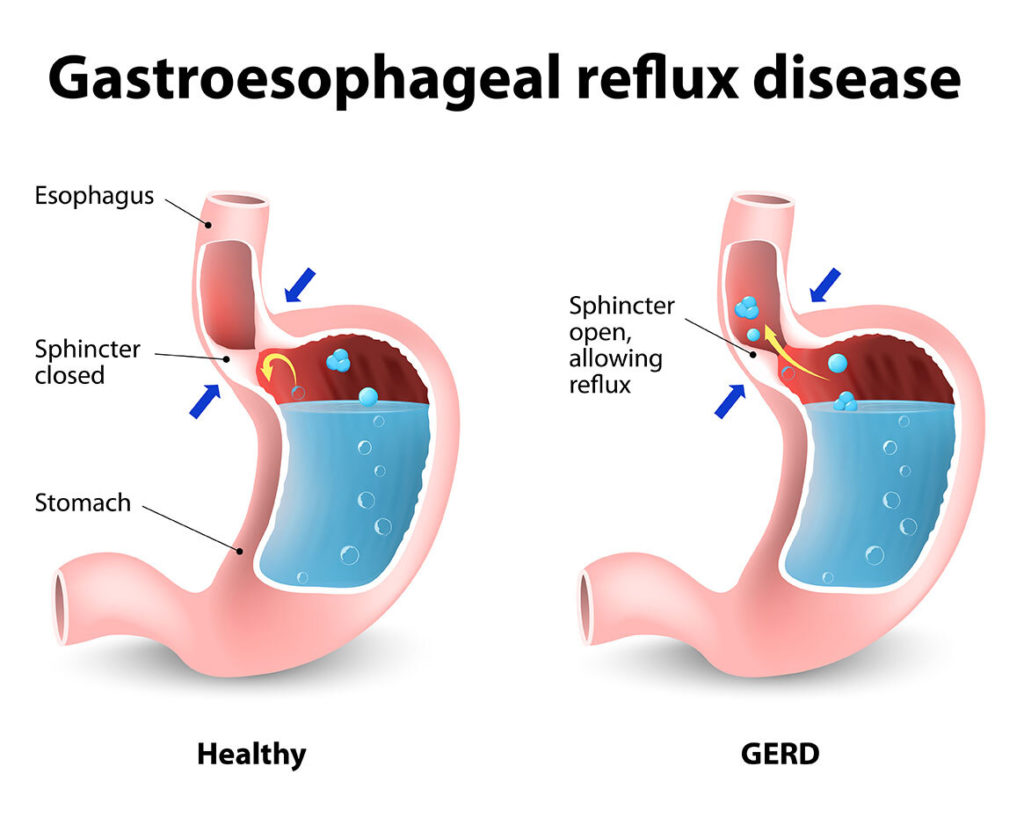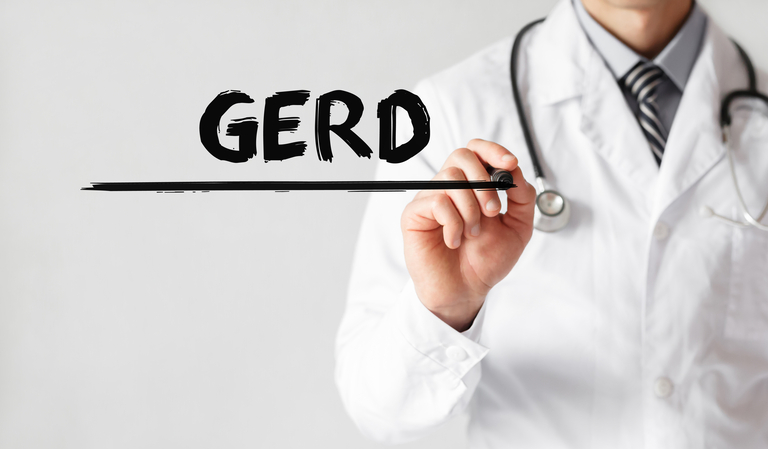Gastroesophageal reflux disease, or GERD, is a digestive disorder classified with symptoms of acid reflux two or more times a week.
What is GERD?
Between the esophagus and stomach, there’s a ring of muscle called the lower esophageal sphincter (LES). When you eat, this muscle opens to let food flow through. Then, it closes to contain the food with the acidic stomach juices working to break that food down. With GERD, this muscle opens back up when it’s not supposed to. This results in letting food and acid flow up.

What Are the Symptoms of GERD?
GERD causes a variety of uncomfortable symptoms, including:
• Heartburn
• Chest pain
• Acid or bitter taste in your mouth
• Nausea or vomiting
• Bad breath
• Difficulty swallowing
• Difficulty breathing
• A feeling of food stuck in your throat
• Bloating
• Burping
• Excess saliva
What Causes GERD?
A variety of factors can cause GERD. Some risk-factors increase your likelihood of suffering from GERD:
• Smoking
• Drinking alcohol
• Excess weight
• Pregnancy
• Consuming certain foods, like fatty, spicy foods, caffeine, and peppermint
Can GERD Be Treated?
Yes, there are treatments for GERD. However, GERD treatments work to make the symptoms more manageable and reduce the risk of complications.
When your doctor evaluates you for GERD, they should work to find the cause of your specific case and provide treatment options that work well with your lifestyle.
At GSGI, we know each case is unique. It’s crucial to find the specific cause for your GERD. Your treatment plan will be something manageable for your current lifestyle.
Treatment may be trial and error at first. However, many patients find relief from changing their lifestyles by making small changes such as avoiding certain foods, eliminating or reducing caffeine, and more.
Can GERD Go Away on Its Own?
Introducing a healthier lifestyle and eliminating foods for other reasons may inadvertently treat GERD. However, without any lifestyle changes, if GERD is left untreated, it is unlikely to go away by itself. Untreated GERD can cause complications and more severe issues, including:
• Dysphagia
• Barrett’s esophagus
• Esophageal cancer
• Esophagitis
It’s best to see a doctor to start a treatment plan if you suffer from GERD.

